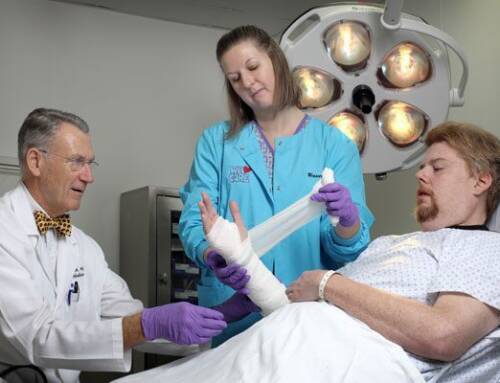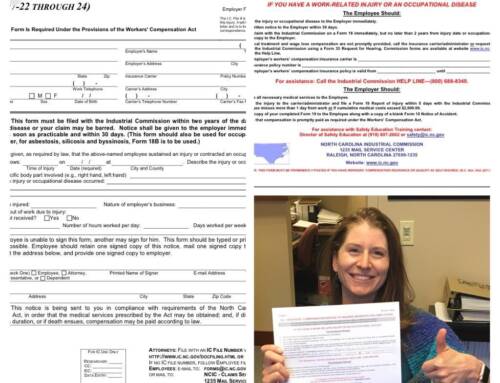Today’s post comes from guest author Michael Furdyna from Pasternack Tilker Ziegler Walsh Stanton & Romano. In North Carolina, if medical travel is 20 miles or more round trip the rate of reimbursement after January 1, 2009 (on a Form 25T) is .55 cents per mile.
While receiving medical treatment related to a workers’ compensation case, claimants often have additional expenses such as mileage, fuel costs, transportation fares, and out-of-pocket prescriptions. Yet many claimants don’t realize they are entitled to reimbursement for expenses they incur in obtaining treatment. Submitting information related to these expenses is an important part of the workers’ compensation process. Problems can arise, however, when incomplete or disorganized information is provided to an insurance carrier. This can result in delays and errors in receiving the proper amount to which they are entitled. Claimants can avoid these sorts of problems with small acts of diligence and record keeping.
Here are a few suggestions:
- Save your receipts and keep a record of your doctor visits. Keeping a log and saving receipts incurred from specific doctor visits provides a “narrative” that makes it easier to tie together dates and expenses.
- Make sure to use the correct form. The New York State WCB requiresthat reimbursement requests be completed using a C-257 form, which should then be filed with both the insurance carrier and the Board. The form can be downloaded here: https://www.wcb.ny.gov/content/main/forms/c257.pdf
- Make sure to use the correct mileage rate.The WCB reimburses mileage using certain amounts covering certain date ranges. The current rate, effective 7/1/2011, is 55.5 cents per mile. In case you have earlier dates, I’ve included the rates back to 2009. The older rates are:
- 1/1/11 – 7/1/11: 51 cents per mile
- 1/1/10 – 12/31/10: 50 cents per mile
- 1/1/09 – 12/31/09: 55 cents per mile
- File your M&T reimbursements regularly. Your expenses are more likely to be processed quickly if you file your payments at regular intervals: monthly, bimonthly, or perhaps quarterly if your doctor visits and expenses are infrequent.
Following these steps will limit the back-and-forth between you and the insurance carrier, reduce processing times, and prevent delays in receiving your M&T reimbursement.







